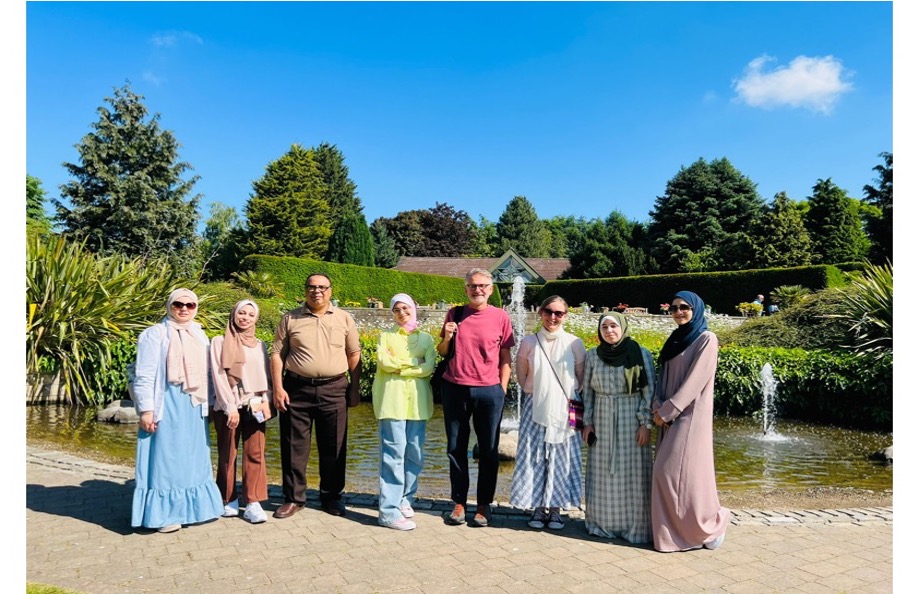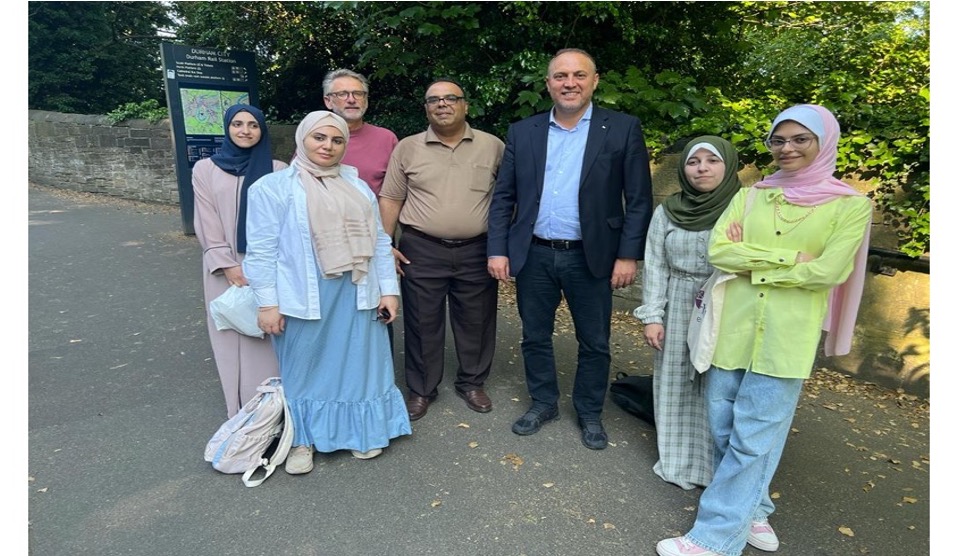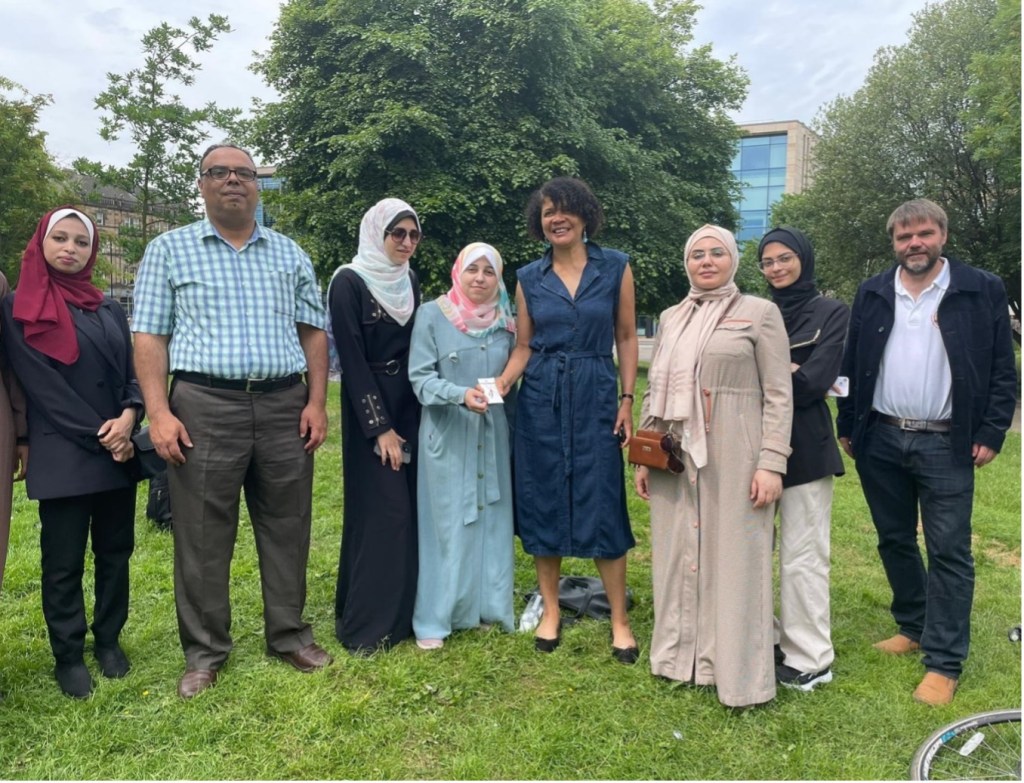
As part of a £100,000 British Council grant (Principal Investigator Bill Guariento), Northumbria University welcomed students and academics from the Islamic University of Gaza this week. After 2 years of online work, we now have face-to-face contact.
The project is unusual: it offers internationalisation with a Global South partner, and inter-disciplinary collaboration combining Disaster management/International Development, Social Work, and Engineering students (led respectively by Richard Kotter, Hellmuth Weich and Co-I Roger Penlington). Looking at the language and intercultural interactions is our principal research-aim – while ensuring a wonderful visit, too, for people who can seldom travel beyond the Gaza Strip (including Co-Investigator Amani Elmgadma).

The visit brought meetings with the Lord Mayor of Newcastle, Cllr Veronica Dunn; the Deputy Leader of Newcastle City Council, Councillor Karen Kilgour; M.P. for Newcastle Central, Chi Onwurah (herself an Electrical and Telecommunications engineer and Shadow Minister for Science, Research & Innovation); the Palestinian Ambassador to the UK, Dr Husam Zomlot.


There were also visits to centres of engineering excellence on Northumbria’s campus; at a local engineering company (Automated Guided Vehicles) with a female engineering Northumbria Alumnus, and to Durham University; and attendance at the North East Battery Alliance conference (held at Newcastle University’s Science Helix campus].

The visit is part of ongoing broader research (initiated with Arts and Humanities Research Council funding), namely the English as a Medium of Education for Female Engineers project, led by Northumbria University’s English Language and Linguistics research group and funded by the British Council. The project compares the experiences of female engineers at UK universities who have English as an additional language, with their peers’ experiences in Palestine.
Co-Investigator Caroline Burns also presented interim project-findings at the London Institute of Social Studies, Decolonising Research Methodologies and Methods Conference, Birkbeck College. A visit to Tyne and Wear Fire & Rescue Services (led by Councillor Mehrban Sadiq, who is also the Chair of the International Emergency Team UK) was the final activity.

Three aspects of this summer’s phase make the collaboration unique:
- the multidisciplinary nature: it’s unusual for students from the three disciplines above to have the opportunity to listen to / work with one another.
- internationalisation: only rarely do UK students have the chance to work outwith the Global North, a practical example of Northumbria’s university-wide decolonisation agenda.
- female empowerment: four of our five visitors from Gaza are female engineers, and issues facing women in particular will be a focus of all four Design Sprints in the final week.
On Tuesday 20th of June, the Gazan students presented four problems/challenges present in Gaza for Northumbria students to work on from intertwined (and interdisciplinary) Engineering, Disaster Management/International Development and Social Work perspectives: sewage treatment / hospital overcrowding / working within the limitations of 3G / the lack of fresh water in the Gaza strip.
This interdisciplinary Design Sprint for Masters (and some advanced undergraduate) students was the central feature of the visit, with evaluation and publications to follow. There were interim presentations of the results on Wednesday the 21st of June, in an event which was open to all and very well attended.
We aim for continued online and face-to-face collaboration with staff and students at the Islamic University of Gaza, to gain from their knowledge and experiences, and for exploration of further collaborative research between and across our respective disciplines.
